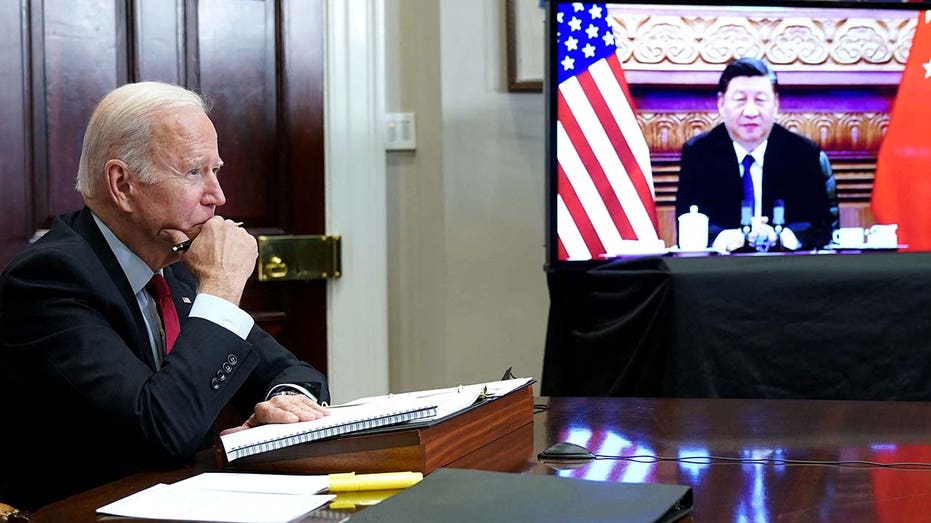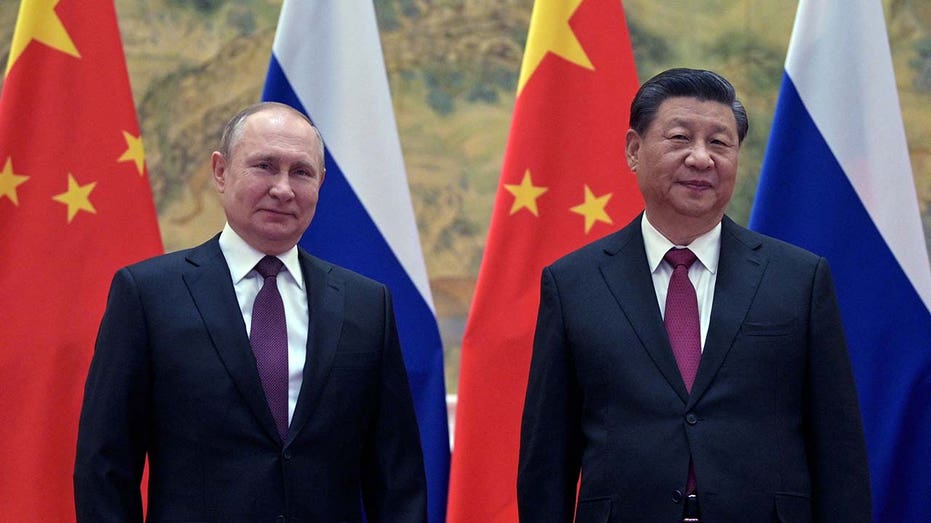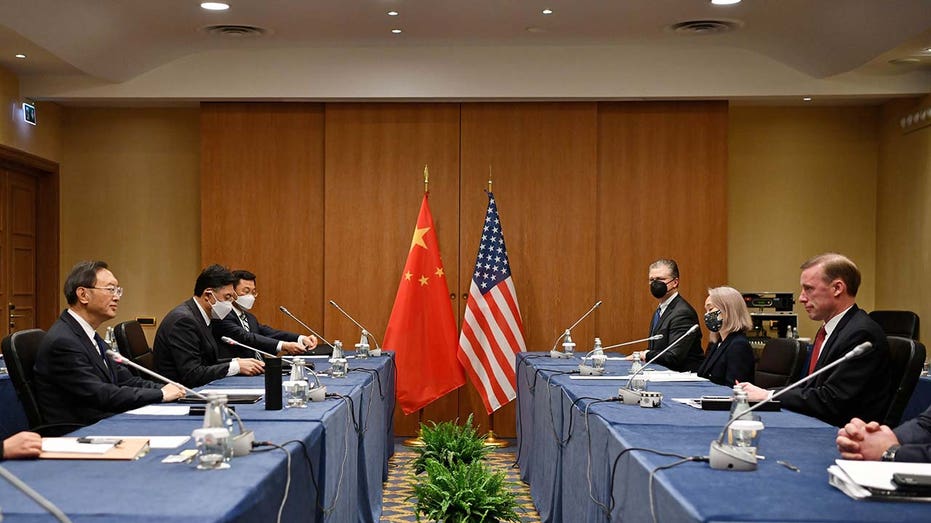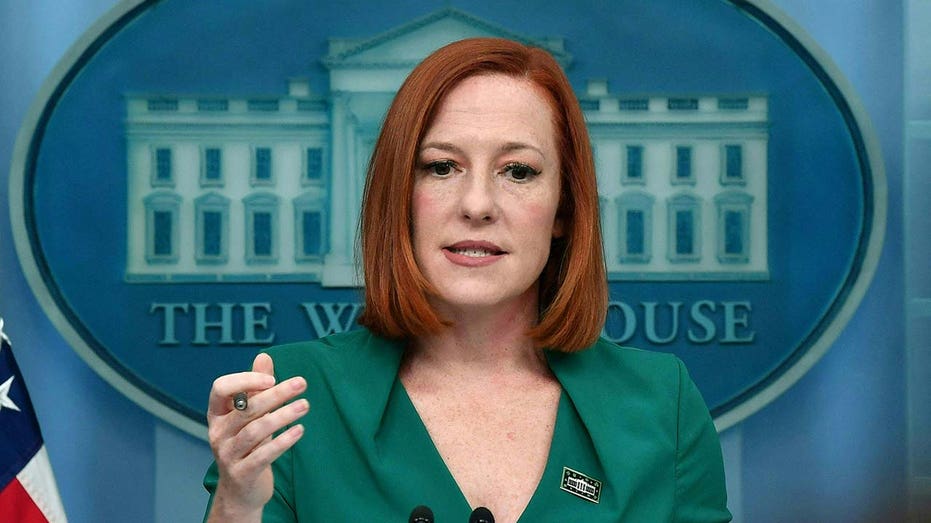Biden’s call with China’s Xi comes amid economic tensions, rising security threats
A host of issues are at play between the U.S. and China
Impact of China lockdowns on global supply chain
Port of Los Angeles Executive Director Gene Seroka explains what should be expected and whether his port is already seeing the effects of the recent COVID-19 lockdowns in China.
President Biden and China's President Xi Jinping will speak by phone on Friday, as the two leaders weigh the others' posture on a range of economic and security tensions that have been heightened following Russia's invasion of Ukraine.
While the U.S. and China are adversaries, Americans' appetite for low-cost Chinese goods and China's dependence on U.S. buyers means the two countries are intertwined whether they like it or not. Despite any political rhetoric, disrupting trade relations between the two nations would damage the economies of both.
China's cozy relationship with Russia has made the situation even more delicate.
RUSSIA INVADES UKRAINE: LIVE UPDATES
The Biden administration is watching to see whether – or to what extent – China assists Russia in working around the crippling sanctions imposed by the U.S. and its NATO allies.

President Biden meets with China's President Xi Jinping during a virtual summit from the Roosevelt Room of the White House in Washington, Nov. 15, 2021. (Getty Images / Getty Images)
Since Vladimir Putin's assault on Ukraine, the Chinese government has moved forward with agreements to buy more oil and wheat from Russia in deals solidified in early February, ahead of the invasion. But Beijing denies more recent allegations that it has agreed to send military equipment or economic aid to the Kremlin.
5 CHARGED WITH SPYING FOR CHINA INSIDE US; 3 ARRESTED, 2 AT LARGE

Russian President Vladimir Putin, left, and Chinese President Xi Jinping meet in Beijing, Feb. 4, 2022. (Getty Images / Getty Images)
China has not condemned Russia's actions against Ukraine and refuses to refer to the ongoing invasion as a "war," though a Chinese official praised the Ukrainian people on Wednesday. Beijing has strong trade relationships with both countries, and insists it is "impartial" regarding the conflict.
UKRAINIAN PARLIAMENT MEMBER: CHINA HAS OPPORTUNITY TO DELIVER ‘DECISIVE BLOW’ TO RUSSIA
Risk of sanctions
If China does extend a lifeline to Russia, it faces the risk of potential sanctions from the West. While Putin appears to have considerably underestimated how destructive economic punishment could be on Russia's economy, China's economy is vastly larger and more sophisticated, making it much better equipped to weather such actions against it.
The scheduled call between Biden and Xi comes days after White House national security adviser Jake Sullivan and Chinese foreign affairs official Yang Jiechi engaged in what the administration called an "intense seven-hour session" in Rome.
Following the Monday meeting, a senior Biden administration official said the White House has "deep concerns" about China's relationship with the Kremlin as the war in Ukraine continues.

U.S. national security adviser Jake Sullivan, first from right, meets with Yang Jiechi, first from left, a member of the Political Bureau of the Communist Party of China CPC Central Committee and director of the Office of the Foreign Affairs Commissi (Getty Images / Getty Images)
Multiple Chinese officials have taunted the U.S. since that meeting.
Hua Chunying, China's assistant minister of foreign affairs, tweeted Wednesday, "While top #US arms manufacturers boasted of the conflicts in #Ukraine as a boon for business, American people are suffering from soaring prices and higher inflation," including a graph showing the spike in inflation that U.S. is experiencing, which sits at a 40-year high.
Deflection on Ukraine
Then on Thursday, China's Foreign Ministry spokesperson Zhao Lijian deflected when asked during a news conference about Ukrainian casualties.
"I wonder if you were equally concerned about the people in Iraq, Syria, Afghanistan and Palestine?" Zhao said, blaming the U.S. and NATO for the crisis in Ukraine.
White House press secretary Jen Psaki was asked during a news briefing the same day whether Biden was going to press Xi during Friday's call about China continuing its economic activity with Russia.
"I think that the conversation tomorrow will be a continuous shift of the conversation our national security adviser had with his counterpart earlier this week," Psaki said, referring to Sullivan's extended talk with Yang. "And certainly China's alignment with Russia in a range of ways is – and the potential implications and consequences of that – are a central part of that conversation."

White House press secretary Jen Psaki speaks at a news briefing in the Brady Briefing Room of the White House in Washington, March 17, 2022. (Getty Images / Getty Images)
Psaki reiterated during the presser that China would face "consequences" if it helped Russia amid Putin's ongoing assault on Ukraine, but refused to say what those consequences would be, specifically when asked whether sanctions against China are on the table.
GET FOX BUSINESS ON THE GO BY CLICKING HERE
But if the U.S. does impose sanctions on China, as the administration appears to be dangling as a threat, it could mean driving up inflation even further for Americans while adding to supply chain woes – and it's unclear whether NATO allies would be willing to make the same move.
FOX Business' Edward Lawrence, Paul Conner, Brooke Singman and Danielle Wallace contributed to this report.





















